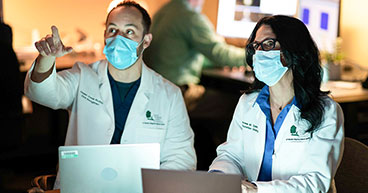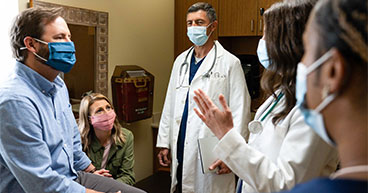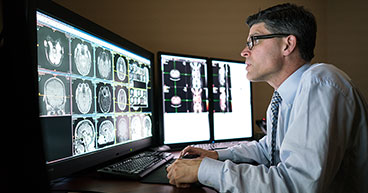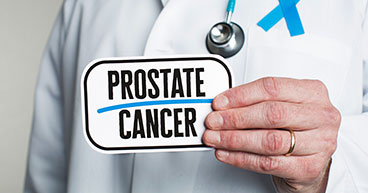


194 Posts

July 13, 2021
Telehealth post-pandemic: Video doctor visits look like they’re here to stayTelehealth may provide advantages for physicians and other health providers, especially when used in combination with in-office appointments.

July 6, 2021
Who is on your cancer care team?When a patient walks through a door of a cancer center, he or she may follow any number of paths to get diagnosed and treated.

June 15, 2021
Are cancer clinical trials safe? Answers to common patient concernsThinking of participating in a cancer clinical trial? This article explains how they work, who they're for, and the risks and benefits for patients.

June 3, 2021
What’s the difference? Ovarian, fallopian tube and primary peritoneal cancersOvarian, fallopian tube and primary peritoneal cancers are the most common cause of death in women with cancer of the reproductive system

May 27, 2021
Radiopharmaceuticals designed to take radiation directly to the cancerOncologists have shown increasing interest in radiophamaceuticals—radioactive particles attached to drugs that are designed to precisely target and kill cancer cells.

May 20, 2021
Bloodless medicine offers options for patients concerned about transfusionsSome cancer patients may refuse transfusions for religious reasons or may have conditions that make them unable to receive transfusions.

May 14, 2021
Colon cancer diet: Navigating nutritional challenges during treatmentColon cancer and its treatment affects your body's ability to digest and absorb nutrients. This article explains what to eat when you have colon cancer.

May 10, 2021
How to decide between radiation and surgery for localized prostate cancerHow do you decide between radiation and surgery for prostate cancer? This article shows you how to compare these treatments to find the one that's right for you.

April 29, 2021
Cancer treatment: 5 common health and safety risksIt’s important to be educated about health and safety risks that could cause delays to your treatment and affect your quality of life.
Guidelines
The information contained in this blog is not intended nor implied to be a substitute for professional medical advice. Always seek the advice of your physician or other qualified health provider prior to starting any new treatment or with any questions you may have regarding a medical condition. Nothing contained in the blog is intended to be used for medical diagnosis or treatment of any illness, condition or disease.